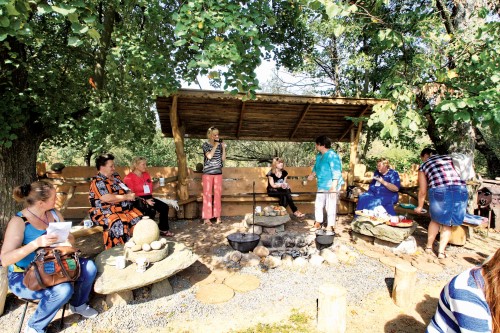
Mlynok agro-estate is located in a picturesque spot on the banks of the Lesnaya River, close to Belovezhskaya Pushcha, in the Kamenets District
Valeria Klitsounova, Chair of Country Escape Public Association, tells us:
About 80 percent of those vacationing worldwide are taking part in agro-tourism within their own country. In Italy, more than half those visiting are foreigners, having been encouraging tourism export since the 1960s. At the moment, 85 percent of Belarusian agro-tourists are local, about 11 percent are from Russia and the modest remainder comprise visitors from 64 countries. We’d like our country to specialise in agro-eco-tourism but, to do so, we must attain European standards, improve and expand services, and update décor. We should show foreigners our traditions and, of course, learn English, while solving questions of visas and infrastructure.
How are agro-estates developing?
We have 2,037 officially registered agro-estates. In comparison, in 2002, we had none. It’s a breakthrough, although just 1,500 are operational. Lithuania and Latvia have less than a thousand. There are four levels of service offered by agro-estates: we give ‘cockerels’ instead of stars. Meanwhile, big businesses are taking part in agro-eco-tourism projects, which is a great step forward, bringing a catalyst for rural development. We need to make sure we’re offering recreational activities suitable for all weathers, and that we have enough small restaurants and cafes, rental agencies and local museums reflecting the way of life of Belarusians. You can learn traditional dances, and find out about ancient customs. We’re also making a culinary map of our country.
Many people complain that agro-estates become booked up for weekends, holidays and the summertime and, when they’re free, prices are very high.
New sites are opening and are yet to draw a regular customer base so, if you book in advance, places are available. It tends to cost 15-50 Euros per night for an ‘inclusive’ stay, with prices reflecting the level of cuisine offered, as well as the degree of luxury and services.











